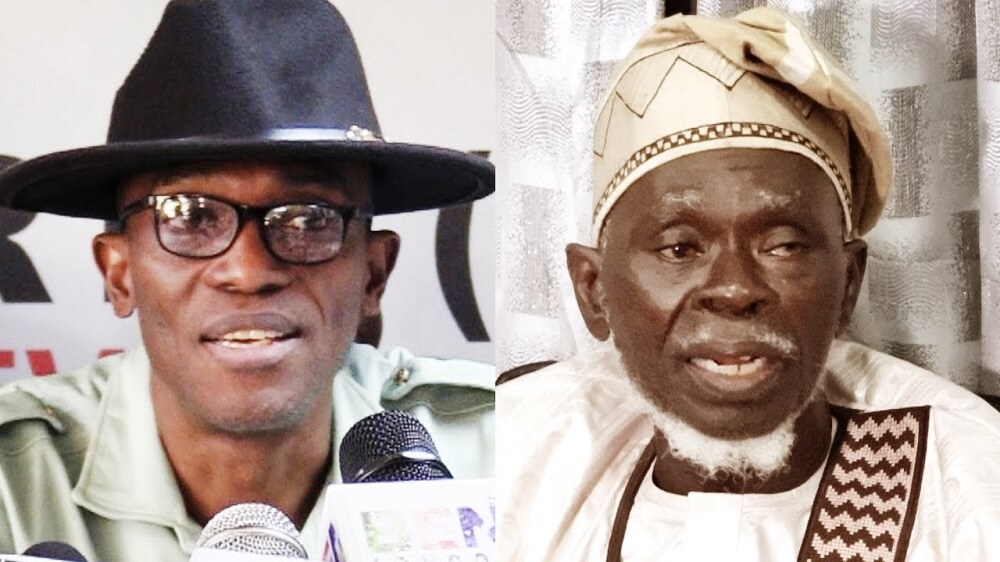The Labour Party (LP) in Nigeria is embroiled in a bitter leadership struggle, creating deep factional divisions within the party. The conflict centers around two main figures: Julius Abure, the embattled National Chairman recognized by a faction of the party, and Lamidi Apapa, a previously sidelined deputy chairman who claims to have assumed leadership following a Supreme Court ruling. This power struggle, further fueled by the involvement of prominent political figures like Governor Alex Otti and 2023 presidential candidate Peter Obi, threatens to destabilize the LP and derail its future prospects. The dispute hinges on the interpretation of a recent Supreme Court judgment and the party’s constitutional provisions regarding succession in leadership vacancies.
The crux of the conflict lies in the Supreme Court’s decision to overturn a Court of Appeal ruling that had affirmed Abure’s position as the legitimate National Chairman. Apapa argues that this Supreme Court judgment invalidates all of Abure’s actions since April 4, 2023, and based on the party’s constitution, empowers him, as the most senior deputy national chairman, to take over leadership in an acting capacity. This interpretation of the court ruling and the party’s constitution is at the heart of the current crisis, with both factions asserting their claims to legitimacy. The situation is further complicated by accusations and counter-accusations of forgery and manipulation, with each side attempting to discredit the other and solidify their grip on power.
Adding fuel to the fire is the involvement of influential political figures who have thrown their weight behind opposing factions. Governor Alex Otti and Peter Obi, the LP’s presidential candidate in the 2023 elections, are reportedly backing Abure’s faction, while Apapa’s claims appear to have garnered support from other quarters within the party. This external involvement, coupled with the internal power struggle, further threatens the party’s unity and cohesion at a crucial time in Nigerian politics. The alignment of these political heavyweights with opposing factions suggests a deeper ideological and strategic divide within the LP, raising concerns about its ability to present a unified front in future elections.
Apapa’s re-emergence onto the political scene following a period of relative obscurity adds another layer of complexity to the leadership tussle. His sudden assertion of authority, based on his interpretation of the Supreme Court judgment, has been met with resistance from Abure’s supporters, who view his actions as a power grab. The resulting standoff has created confusion and uncertainty within the LP, with members unsure of who legitimately holds the reins of power. This ambiguity hinders the party’s ability to effectively organize and strategize for future political engagements, potentially jeopardizing its chances of success in upcoming elections.
The implications of this leadership crisis extend beyond the immediate power struggle. The ongoing conflict threatens to undermine the LP’s credibility and erode public trust in the party. The internal wrangling and public displays of disunity project an image of instability and disorganization, which could deter potential supporters and damage the party’s reputation. Moreover, the protracted legal battles and internal squabbles divert valuable resources and energy away from focusing on critical issues facing the nation, further hampering the party’s ability to contribute meaningfully to the political discourse.
The future of the Labour Party hinges on resolving this leadership crisis swiftly and decisively. A protracted power struggle could lead to further fragmentation and potentially irreparable damage to the party’s structure. Reconciliation and compromise between the warring factions are crucial to restoring unity and ensuring the LP’s long-term viability. Failure to achieve a peaceful resolution could result in a protracted period of instability, potentially leading to a decline in the party’s influence and relevance within the Nigerian political landscape. A unified and cohesive Labour Party is essential for providing a strong opposition and contributing to a vibrant and competitive democracy.


